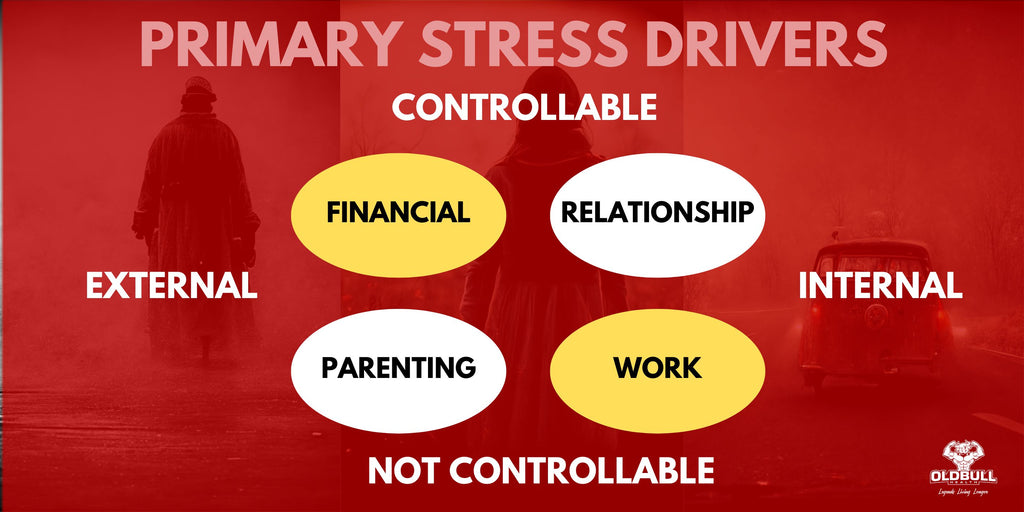Stress
We can't escape stress, it's a part of life.
From being an HSC student, starting a new job, being a seasoned CEO, going through relationship challenges or facing cost of living stress.
The list goes on, you are not alone. Welcome to the human race. Doing nothing is not a strategy.
We all have stress or stressful situations from time to time. But, understand your stress, how it may be impacting your health and well-being, what constitutes "normal" stress, the risks associated with prolonged stress, and then what you can do about it to lead a more balanced life.
What is Stress?
Stress is your body's natural response to challenging or demanding situations.
It is a physiological and psychological reaction that prepares you to deal with perceived threats.
While stress is a normal part of life, prolonged or excessive stress are the problem and can have negative effects on your health and well-being.
Why care about Stress?
Chronic stress can contribute to various physical and mental health problems, including:
- cardiovascular diseases,
- weakened immune function,
- anxiety,
- depression, and
- poor sleep.
By recognising and addressing stress, you can proactively safeguard your health, and improve your quality of life.
What does Stress do?
Stress triggers a series of physiological responses known as the "fight-or-flight" response. Basically, it is there to try and keep you safe in emergencies.
It includes physical and thought responses, and your organs are programmed to respond is different ways when this happens.
During the response, your body releases stress hormones such as cortisol and adrenaline, which prepare you to face any real or perceived challenges.
- Increased heart rate and blood flow.
- Increased blood flow to active muscles.
- Decreased blood flow to organs not needed for rapid response.
- Increased glucose concentration.
- Increased mental activity.
- Increased rate of blood coagulation.
- Increased glycolysis in liver and muscle.
This happens in 3 stages:
- Alarm - adrenaline and some cortisol, fight or flight response
- Resistance - body tries to cope with ongoing situation, gets depleted.
- Exhaustion - cannot maintain normal functions.
Basically, a short-term response system, for emergencies, that cannot necessarily sustain longer term responses without some form of health impact.
What is "normal" Stress?
Stress is a natural part of life and can even be positive. For example, helping you achieve a certain goal or deadline.
Short-term stress, known as acute stress, is usually manageable and subsides once the stress is resolved.
Longer term stress can become overwhelming, significantly impact your well-being and requires attention and intervention.
Risks of prolonged Stress
Prolonged exposure to high levels of stress can lead to serious health issues, and the risks include:
- Mental health disorders.
- Cardiovascular disease.
- Weakened immune function.
- Digestive disorders.
Managing and coping with Stress
While we can't completely eliminate stress, adopting healthy coping strategies can help you effectively manage its impact.
Some practical steps and strategies include:
- Identifying stress triggers.
- Practicing relaxation techniques.
- Exercising.
- Hobbies
- Sport
- Prioritising self-care.
- Getting help or support.
- Talking with friends.
- Time management
- Managing or establishing boundaries
Overview
Stress is a part of life, sometimes essential, but managing it is also essential to maintaining your health and well-being. We often also make our own stress.
By understanding the impact of stress, recognising stress triggers, and adopting healthy coping strategies, you can better manage your stress levels, and achieve a more balanced and fulfilling life.
Live your best life.
Disclaimer: The information provided by Old Bull Health in this article is for informational purposes and should not replace professional medical advice. Our content is not intended to be medical advice, diagnosis, or treatment, and thus reliance should not be placed on it. If you are experiencing symptoms, please consult a healthcare professional.

